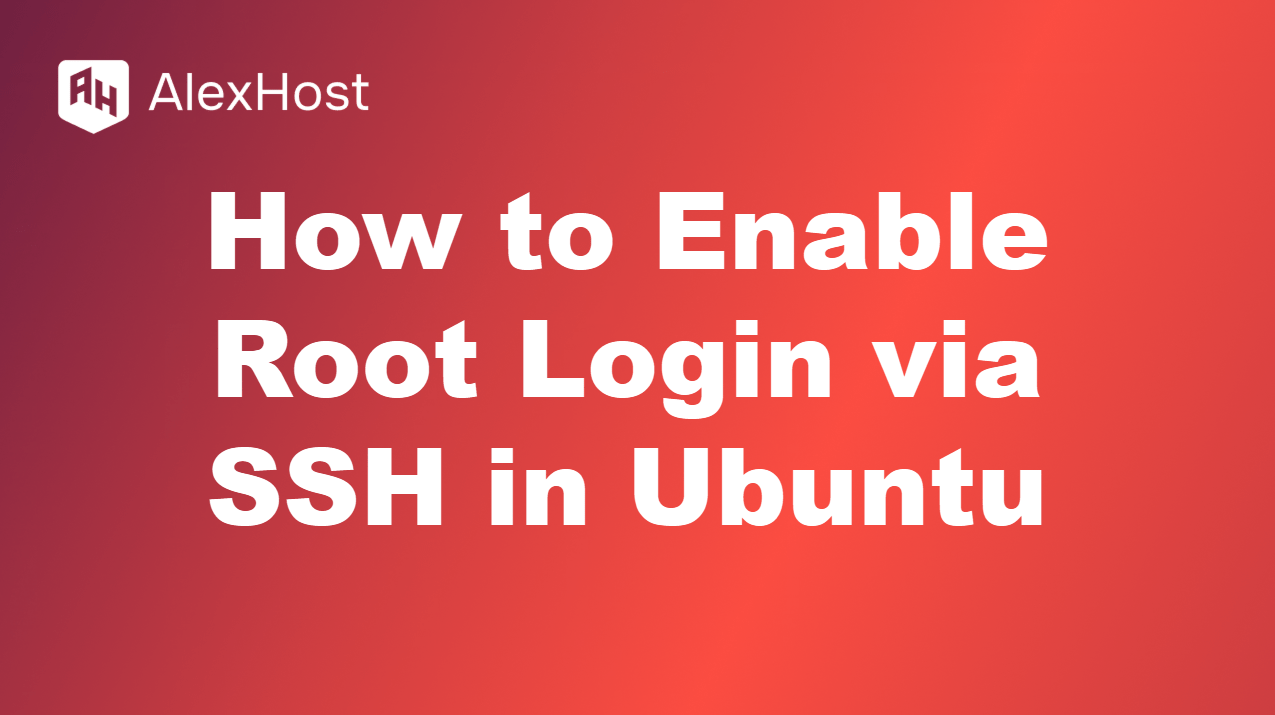faq-post
Apache HTTP Server, commonly referred to simply as Apache, is one of the most widely used web server software applications. Knowing the version of Apache installed on your Linux VPS is essential for maintaining security, compatibility, and performance. In this article, we will explore various methods to check the Apache version installed on your system. […]
By default, Ubuntu disables root login over SSH for security reasons. This restriction helps to protect servers from unauthorized access, as the root account has full control over the system. However, in certain situations, such as troubleshooting or performing administrative tasks, you may need to enable root login via SSH. In this guide, we’ll walk […]
CentOS 7, a popular server operating system known for its stability, ships with Python 2.x by default. However, many modern applications require Python 3, which offers significant improvements and new features. Installing Python 3 on CentOS 7 is an essential step for developers and system administrators who want to keep their environments up to date. […]
A Reverse DNS record (rDNS) or PTR record is used to resolve an IP address into a domain name. Unlike regular DNS, which maps domain names to IP addresses, rDNS performs the reverse task by mapping an IP address to a domain name. This is useful for tasks such as verifying sender authenticity on mail […]
A 401 error on a WordPress site indicates that the server is blocking access due to unauthorized credentials. This error message usually reads: “401 Unauthorized” or “Access Denied”. Understanding why this happens and how to fix it is crucial for maintaining a functioning website. This guide will cover the most common causes of a 401 […]
.AU Domain Registration: Your Guide to Securing an Australian Web Address Why register a .AU domain? A .AU domain screams “Australian” and builds trust with local customers, whether you’re a business, non-profit, or individual. Managed by auDA (Australian Domain Administration), .AU domains require a genuine Aussie connection. This guide simplifies the eligibility rules for different […]
Keeping your email settings up to date in Windows 10 Mail ensures seamless communication and secure access to your emails. Whether you need to update your password, adjust server settings, or tweak sync preferences, the built-in Mail app for Windows 10 makes it easy to manage your email configurations. This guide will walk you through […]
Keeping your email settings up to date on your iPhone or iPad ensures that your email accounts function smoothly and securely. Whether you need to change your password, update server settings, or adjust sync preferences, the built-in Mail app on iOS makes it easy to manage your email configurations. This guide will walk you through […]
Managing your emails efficiently requires a reliable hosting solution, and AlexHost’s Email Hosting Services provide the perfect foundation. With robust security, fast performance, and full support for IMAP/SMTP configurations, AlexHost ensures seamless integration with email clients like Spark. Whether for personal use or team collaboration, AlexHost empowers you to stay organized and connected effortlessly. Spark […]
When setting up an email account, you may encounter terms like IMAP, SMTP, and POP. These protocols are crucial for the smooth sending and receiving of emails, but it can be confusing to figure out which one to use or what they do. This guide will explain the differences between these protocols and how to […]

















